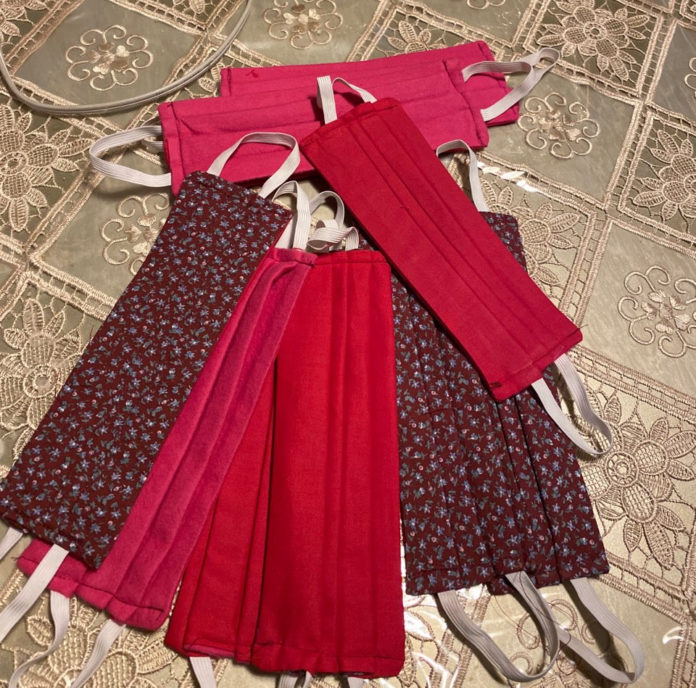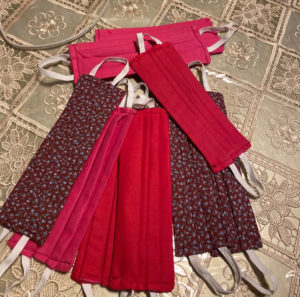Recruited by her daughter, who is a student at the University of Minnesota, Hawa Elmi is helping to fill the personal protective equipment gap in Minnesota.
Minnesotans like Nadira Mohamed have found themselves drawn into the state’s “all hands on deck” approach to mitigating the COVID-19 pandemic.
On Monday, Nadira received an email from a professor at the University of Minnesota’s College of Pharmacy asking students and faculty for help in creating masks for medical staff. Just weeks away from graduating with her doctorate in pharmacology, Nadira knew that her mother, Hawa Elmi, was the perfect person to turn to for assistance.
Hospitals and clinics around the state have experienced a shortage of crucial supplies needed for healthcare workers responding to the virus. The Minnesota state government has teamed up with the Salvation Army to list sites where donations of personal protective equipment, including medical-grade N95 masks, can be dropped off. Healthcare providers and state officials also have turned to community members like Nadira and Hawa to fill in the gaps.
Growing up, Nadira saw her mother, who was born in Somalia, constantly sewing in their home. After receiving the email from her professor, she said, “I looked to hooyo and said, ‘Hey, would you be willing to help?’”
Hawa jumped at the opportunity. A mother of eight, she had once attended nursing school but left her career to raise her children. “She has a passion for healthcare professionals and just giving back,” Nadira said.
The effort began when Elizabeth Hirsch, a doctor of pharmacology and assistant professor at the U’s College of Pharmacy, put out a call via Twitter looking for area sewers to make masks.
“Another faculty member at the college, Ann Philbrick, responded, so I started by providing her fabric to help sew,” Hirsch said.
A week later, Hirsch communicated with college administrators about putting the call out college-wide, including to students. She did so and landed the help from Nadira and Hawa. She provided Nadira and three other pharmacy students the materials needed to make the masks and identified Allina Health and M Health Fairview as recipients of their handiwork.
Hirsch stressed that homemade masks should not be viewed as replacements for N95 masks.
“The idea [is] that these homemade masks could be used for low-risk patients and providers and the surgical or N95 masks could then be diverted to the higher risk COVID-19 patients and providers,” she said.
With the materials in hand, Nadira and Hawa set out to sew as many masks as possible. While Nadira pulled up a variety of online video tutorials, she turned to find her mother freestyling on her own.
“I kid you not, she did it exactly how they wanted and even better,” Nadira said. Within 10 minutes, her mother had made three masks.
“Anyone who knows my mother knows that she loves to sew,” she said. “So, it was no surprise to see her jump at the opportunity to help make masks for our frontline healthcare heroes battling COVID-19.”
Hawa learned to sew from her mother and father in Somalia. After arriving in the United States in 1993, she took up the role of seamstress for her community.
Nadira said that during her childhood, 20 to 30 people would stop by their home each week to have Hawa tailor their clothes. Although it was an occupation for her at one point, Hawa now sees sewing as a responsibility.
“If you’re going to do something, you do it for the sake of Allah,” Hawa said.
Making the masks is her way of giving back to her adopted home, where she’s lived for nearly three decades. “These doctors are my doctors,” she said. “The nurses are my nurses. This is my country.”
“Everyone should help any way that they can at this time,” Hawa said.







































